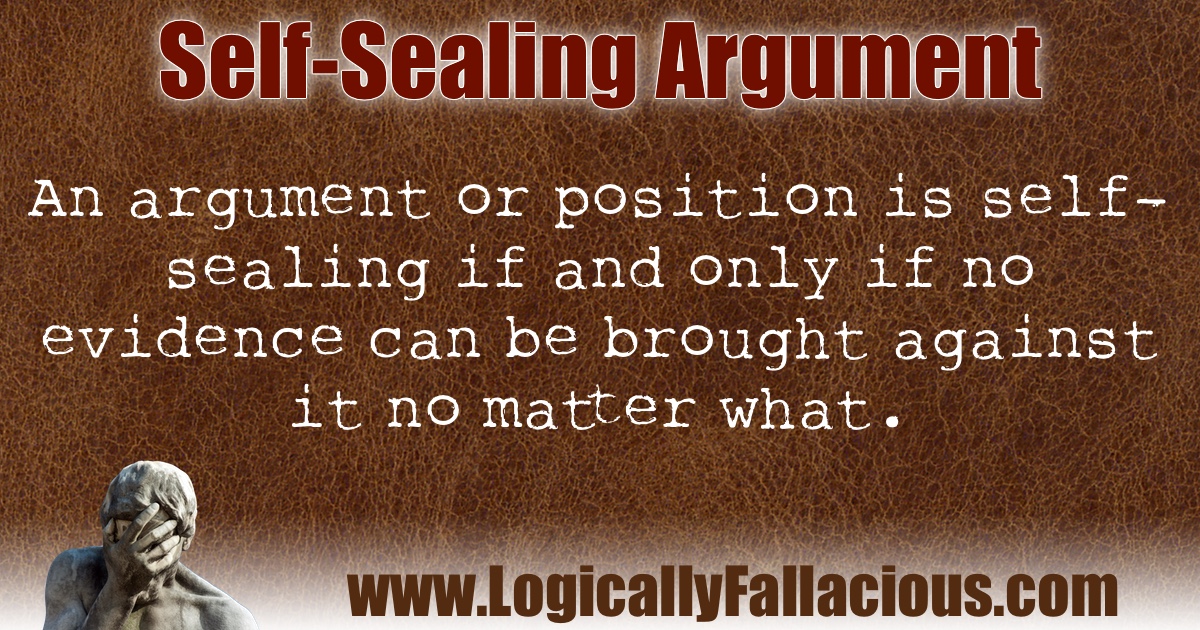(also known as: vacuous argument)
Description: An argument or position is self-sealing if and only if no evidence can be brought against it no matter what.
Logical Form:
Claim X is made.
Reason Y is given for claim X.
Reason Y can not possibly be refuted.
Example #1:
Wherever you go, there you are.
Explanation: You can’t argue against that position, and as a result, it is vacuous, or meaningless.
Example #2:
Tina: My life is guided by destiny.
Mary: How do you know that?
Tina: Whatever comes my way is what was meant to be.
Explanation: We have the same vacuity problem here, except this one is less obvious and protected by a philosophical belief system. There is no possible way we can know what "destiny may have in store for us," thus no way to argue against it. As a result, it is meaningless -- it is the equivalent of saying everything happens because it happens.
Exception: Holding beliefs that are unfalsifiable is not fallacious, especially when stated as beliefs or opinions. This becomes fallacious when an unfalsifiable claim is presented as evidence in argumentation.
Tip: Realize that most superstitious beliefs are centered around self-sealing or vacuous arguments, that is why so many people refuse to let go of superstitious beliefs -- because they cannot be proven false.
